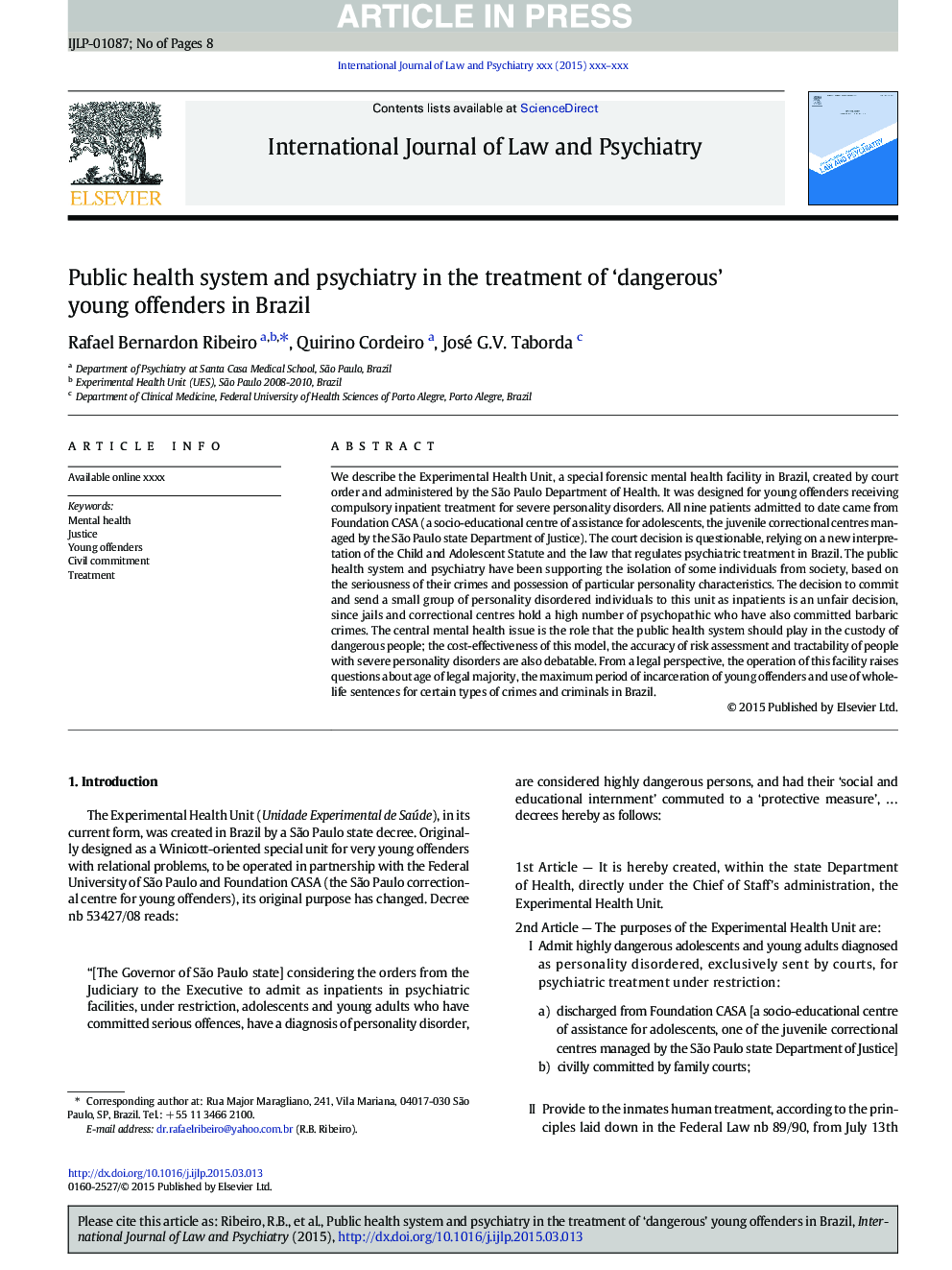| Article ID | Journal | Published Year | Pages | File Type |
|---|---|---|---|---|
| 6554629 | International Journal of Law and Psychiatry | 2015 | 8 Pages |
Abstract
We describe the Experimental Health Unit, a special forensic mental health facility in Brazil, created by court order and administered by the São Paulo Department of Health. It was designed for young offenders receiving compulsory inpatient treatment for severe personality disorders. All nine patients admitted to date came from Foundation CASA (a socio-educational centre of assistance for adolescents, the juvenile correctional centres managed by the São Paulo state Department of Justice). The court decision is questionable, relying on a new interpretation of the Child and Adolescent Statute and the law that regulates psychiatric treatment in Brazil. The public health system and psychiatry have been supporting the isolation of some individuals from society, based on the seriousness of their crimes and possession of particular personality characteristics. The decision to commit and send a small group of personality disordered individuals to this unit as inpatients is an unfair decision, since jails and correctional centres hold a high number of psychopathic who have also committed barbaric crimes. The central mental health issue is the role that the public health system should play in the custody of dangerous people; the cost-effectiveness of this model, the accuracy of risk assessment and tractability of people with severe personality disorders are also debatable. From a legal perspective, the operation of this facility raises questions about age of legal majority, the maximum period of incarceration of young offenders and use of whole-life sentences for certain types of crimes and criminals in Brazil.
Related Topics
Health Sciences
Medicine and Dentistry
Forensic Medicine
Authors
Rafael Bernardon Ribeiro, Quirino Cordeiro, José G.V. Taborda,
